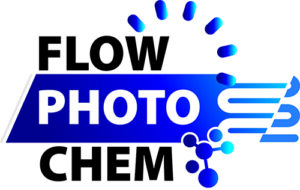Horizon 2020-Funded Project to Reduce Greenhouse-Gas Emissions
 FlowPhotoChem, a multi-national research project led by NUI Galway (www.nuigalway.ie), has been awarded €6.99million in funding under the Nanotechnologies, Advanced Materials, Biotechnology, and Advanced Manufacturing and Processing (NMBP) area of the European Union’s Horizon 2020 research and innovation programme. The European Green Deal sets out to make Europe climate neutral by 2050, and the Clean Planet for All strategy set out ambitious targets to reduce carbon dioxide (CO2) emissions in the EU by 40% by 2030 and by 80-95% by 2050. One of the largest polluters in Europe is the chemical industry, emitting over 145 million tonnes of CO2 equivalents each year. Pintail Limited will assist the coordinator with the management of the project.
FlowPhotoChem, a multi-national research project led by NUI Galway (www.nuigalway.ie), has been awarded €6.99million in funding under the Nanotechnologies, Advanced Materials, Biotechnology, and Advanced Manufacturing and Processing (NMBP) area of the European Union’s Horizon 2020 research and innovation programme. The European Green Deal sets out to make Europe climate neutral by 2050, and the Clean Planet for All strategy set out ambitious targets to reduce carbon dioxide (CO2) emissions in the EU by 40% by 2030 and by 80-95% by 2050. One of the largest polluters in Europe is the chemical industry, emitting over 145 million tonnes of CO2 equivalents each year. Pintail Limited will assist the coordinator with the management of the project.
As part of the project, FlowPhotoChem will develop novel technologies to use concentrated solar energy and advanced catalysts to convert water and CO2 into valuable chemicals. Rather than generating CO2, the FlowPhotoChem integrated system will utilise CO2 as a carbon source to produce chemicals without the use of fossil fuels, reducing Europe’s greenhouse-gas emissions and contributing to a cleaner planet.
FlowPhotoChem is led by Dr Pau Farràs from the School of Chemistry, and researcher at the Energy Research Cluster in the Ryan Institute, at NUI Galway. Dr Farràs said: “This project is one-of-a-kind in Ireland and will demonstrate that direct solar energy conversion technologies can be deployed everywhere. We are leading this exciting European project with the aim to produce green ethylene as a key compound for the chemical industry. With FlowPhotoChem, we will develop in parallel a demonstrator and a comprehensive model which can pave the way for a range of other green chemicals produced solely from water and CO2.”
During the project research teams from Ireland, Germany, Hungary, Spain, Switzerland, the Netherlands, Uganda and the UK will develop better materials, innovative reactors and advanced computer models to build a proof-of-concept, integrated modular system to convert CO2 into ethylene, a valuable industrial chemical, using concentrated sunlight. Environmental sustainability and scalability will be key parts of the design process to future proof the system. To make sure FlowPhotoChem’s modular system successfully makes it to the market to reduce CO2 emissions, the team will work with chemical companies that could use the technology to find out about their needs and requirements.
The project officially started on June 1st, 2020. Aside from coordinators at NUI Galway, partners include Pintail Limited, the Universitat Politecnica de Valencia, Fundacio Privada Institut Catala D’Investigacio Quimica, Ecole Polytechnique Federale De Lausanne, Szegedi Tudomanyegyetem, Johnson Matthey Plc, Membrasenz Sarl, Helmholtz- Zentrum Berlin fur Materialien und Energie Gmbh, Deutsches Zentrum fuer Luft- Und Raumfahrt Ev, Acondicionamiento Tarrasense Associacion, Thalesnano Nanotechnologiai Kutato-Fejleszto Mukodo Rt, Technische Universiteit Eindhoven and Kyambogo University.
Read the FlowPhotoChem profile on the CORDIS website.
 This project has received funding from the European Union’s Horizon 2020 research and innovation programme under grant agreement no 862453. The material presented and views expressed here are the responsibility of the author(s) only. The EU Commission takes no responsibility for any use made of the information set out.
This project has received funding from the European Union’s Horizon 2020 research and innovation programme under grant agreement no 862453. The material presented and views expressed here are the responsibility of the author(s) only. The EU Commission takes no responsibility for any use made of the information set out.
